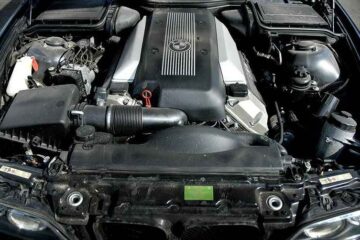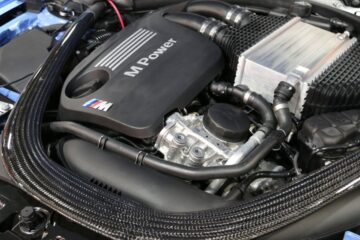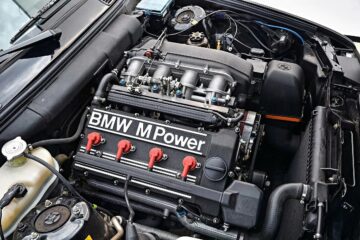The M57D30TU2 is a diesel engine with a displacement of 3.0 liters. To be more precise, it is 2996 cubic centimeters. The power of the motor is 204-272 hp, depending on the modification. It was installed on BMW 3-th and 5-th series cars. By its type is in-line, has a set of 6 cylinders, each of which is distributed on 4 valves. The total number of valves is 24. There is a dual gas distribution system “VANOS”. As a fuel, it is recommended to use AI-95 gasoline. Consumption varies depending on where the car is used. In mixed driving, the figure will be within 8-10 liters per 100 kilometers.
The M57D30 engine saw the light of day in 1998. The development was carried out by the famous Steyr Plant company. Production lasted until 2012. Motorists were able to appreciate many different modifications of this motor, about which we will tell you a little later.
Engine specifications M57D30TU2
| Power, hp. | 197 – 355 |
| Fuel type | Diesel fuel |
| Volume, cm*3 | 2993 |
| Maximum torque, N*m (kg*m) at rpm. | 400 (41) / 3250; 425 (43) / 2750; 480 (49) / 2250; 500 (51) / 1750; 500 (51) / 3000 |
| Fuel consumption, l/100 km | 6.9 – 9 |
| Engine type | In-line, 6-cylinder |
| CO2 emission, g/km | 189 – 231 |
| Cylinder diameter, mm | 84 |
| Number of valves per cylinder | 4 |
| Maximum power, hp (kW) at rpm. | 197 (145) / 4000; 231 (170) / 4000; 235 (173) / 4000; 265 (195) / 4200; 286 (210) / 4400 |
| Blower | Turbine |
| Compression ratio | 18 |
| Piston stroke, mm | 90 |
Advantages
The cylinder block of the M57TU2 power unit is made of cast iron and aluminum, which indicates its reliability due to the use of such high-quality and durable materials. The weight of the engine is in the neighborhood of 200 kg. The described engine has been tested according to Euro 3 and Euro 4 environmental standards. To achieve this goal, the manufacturers put in the engine intake manifold with vortex flaps. At low speeds they are able to close one intake channel at a time. This in turn can improve the formation of the mixture, as well as fuel combustion. The EGR valve is engaged. Its purpose is to improve the exhaust itself by redirecting a certain part of it directly into the cylinders. This is done to maximize the quality of combustion. The Bosch DDE4 unit is responsible for the motor control. The operating temperature of the power unit is 90 degrees.
Oil consumption per 1000 kilometers traveled can be up to 700 grams. The oil should be changed every 7-8 thousand kilometers. It is recommended to use 5W-30 or 5W-40 oil.
It is impossible to ignore the impressive engine life, which under normal operating conditions and timely maintenance is able to pass the mark of 500,000 km.
Disadvantages
However, despite all the positive aspects of this motor, it could not do without disadvantages. First of all, pay attention to the swirl flaps. As in the case with the M47 there can be a problem with this element of the engine. The flaps are capable of coming off and significantly spoiling the overall condition of the motor. It is therefore strongly recommended to remove these very flaps as soon as possible by installing plugs.
Secondly, various knocks and noise may occur periodically. This problem is mainly related to the crankshaft damper. It is necessary to test its condition, because it is quite possible that it is time to replace it.
All engines belonging to the M57TU2 series are very tunable. You can increase the power by about 40 hp with the usual firmware. And if you use a downpipe, you can add another 10-20 hp on top.
Modifications
There are several modifications to the engine:
- M57D30U2 / M57TU2. Produced from 2006 to 2010. It is distinguished by an aluminum cylinder block. Power is 197 hp.
- M57D30O2 / M57TU2. Years of production: 2005-2008. Power – 231 hp.
- M57D30O2 / M57TU2. Produced from 2007 to 2010. It has a power rating of 235 hp.
- M57D30T2 / M57TU2 TOP. This is the most powerful engine in the series, produced from 2006-2012. It has an output of 286 hp.



0 Comments